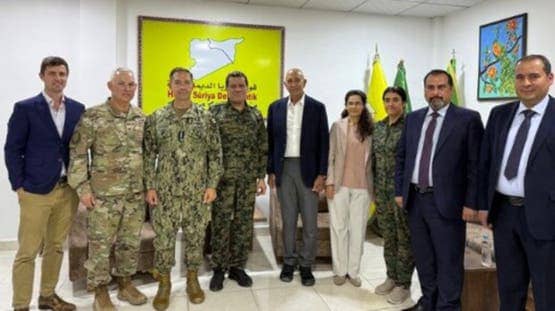Brack Meets the Leader of "SDF" in Northeast Syria

Amid the stalled negotiations between the Syrian Democratic Forces (SDF) and the Syrian authorities in Damascus, and the rising criticisms of the recent People's Council elections, the northeast region of Syria witnessed a visit from American diplomat Tom Brack.
The American envoy announced, via his account on the "X" platform, on Monday, his visit to the region and his talks with the military leader of the Syrian Democratic Forces, Mazloum Abdi. Brack, who has previously played a mediating role between the Syrian and Kurdish parties, clarified that the visit comes within the framework of "enhancing the vision of President Donald Trump, which is to 'give Syria a chance' by allowing Syrians to unite, in order to establish peace and prosperity in their country."
This visit came one day after the Syrian parliamentary elections, which saw the absence of the Raqqa and Hasakah governorates. For its part, the Syrian Democratic Council (SDC), the political wing of the SDF, issued sharp criticisms of the electoral entitlement.
The SDC stated in a statement that the electoral process "does not reflect the will of all Syrians," pointing out that it "did not represent all regions and components in the country." The postponement of elections in the governorates of Sweida, Raqqa, and Hasakah, according to the official announcement of the High Election Commission, is due to "security challenges."
It is noteworthy that the negotiation track between the SDF and Damascus is experiencing stagnation, despite the agreement reached by Mazloum Abdi with Syrian Vice President Ahmad al-Shara on March 10 of last year. That agreement stipulated the "integration of his forces into the new army, with constitutional guarantees for the rights of the Kurds alongside other provisions related to the return of displaced persons to their areas and combating remnants of the regime and managing oil resources and border crossings."
However, the public negotiations that followed faced significant obstacles, as the self-administration insisted on maintaining the specificity of the SDF within the Syrian army, which Damascus rejected. Additionally, the disagreement over the nature of the state posed another obstacle, as the Kurdish side demanded a decentralized state, while the Syrian authorities insisted on a centralized state.